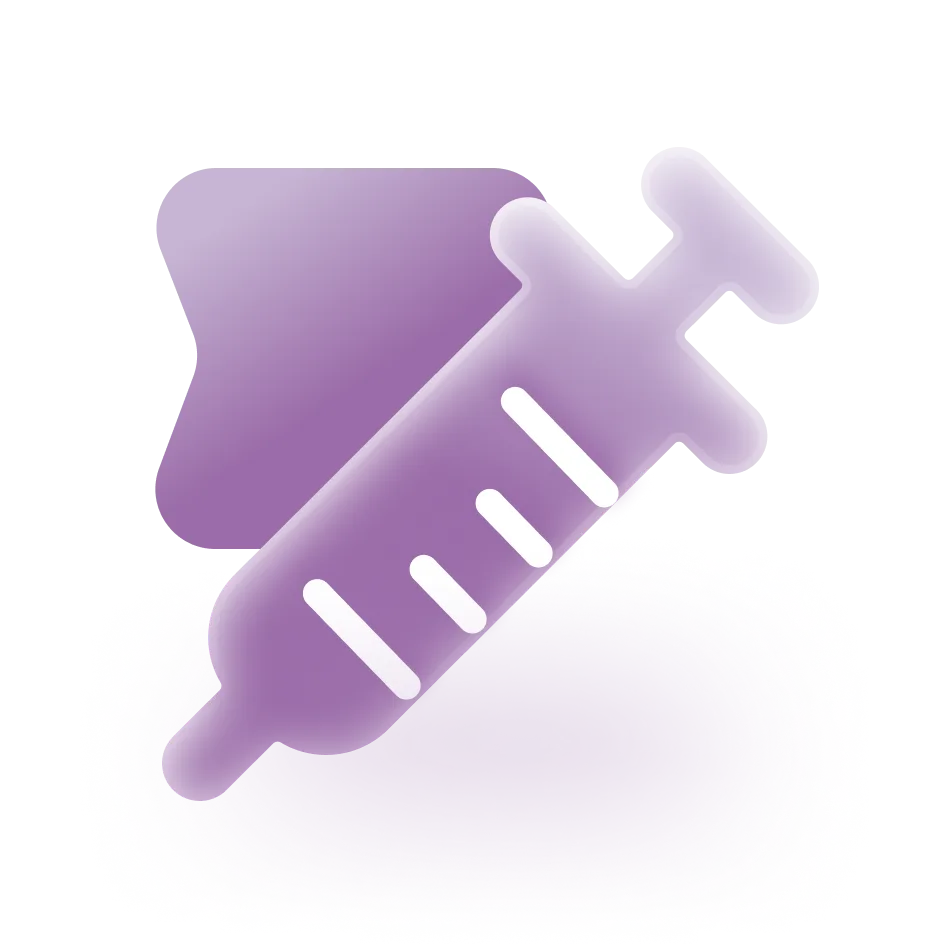Home

Tools

Ovulation Calcuator

OVULATION CALCULATOR
What is Ovulation?
Ovulation is a monthly process, in which a woman’s ovaries produce an egg, which when fertilized, helps in the final goal of conception.
Importance of Ovulation
When you’re trying to get pregnant, ovulation is of utmost importance since that’s the time you’re most fertile. Having unprotected sex during this period of your menstrual cycle can increase the chances of getting pregnant. However, if you miss your fertile window, you'll have to wait until the next cycle to try again. Hence, you must keep track of your ovulation days in order to plan your family.
However, in case, you’re already a mother and wish to prevent an unwanted pregnancy, you must abstain from having sex during your fertile days. Many times, new mothers do not get their periods while they are breastfeeding & have this misconception that they are not ovulating. But this is not the case. Even if your body is not shedding the dirty blood each month, you still continue to ovulate & be fertile. The milk producing hormone prolactin is produced in an increased amount during breastfeeding & the levels of estrogen & progesterone are decreased due to this. Once your baby starts weaning, the levels of prolactin go down & your cycle returns back to normal.
How Long Does the Ovulation Period Last?
The ovulation period normally lasts between 12 and 48 hours. If you indulge in unprotected sex and as a result the egg & sperm are able to meet, then this egg can get fertilized, leading to conception. According to The American Pregnancy Association & various other research journals, the sperm can remain in a woman's reproductive system for up to 5 days. It also indicates that a woman is potentially fertile for up to 10 days after ovulation.
How to Calculate Ovulation?
The ovulation period normally lasts between 12 and 48 hours. If you indulge in unprotected sex and as a result the egg & sperm are able to meet, then this egg can get fertilized, leading to conception. According to The American Pregnancy Association & various other research journals, the sperm can remain in a woman's reproductive system for up to 5 days. It also indicates that a woman is potentially fertile for up to 10 days after ovulation.
How to calculate ovulation period?
Just jot down the start date of your last menstrual cycle and ovulation will take place between the 10th-14th day from that date. This calculation is easy and simple but can't always be accurate:
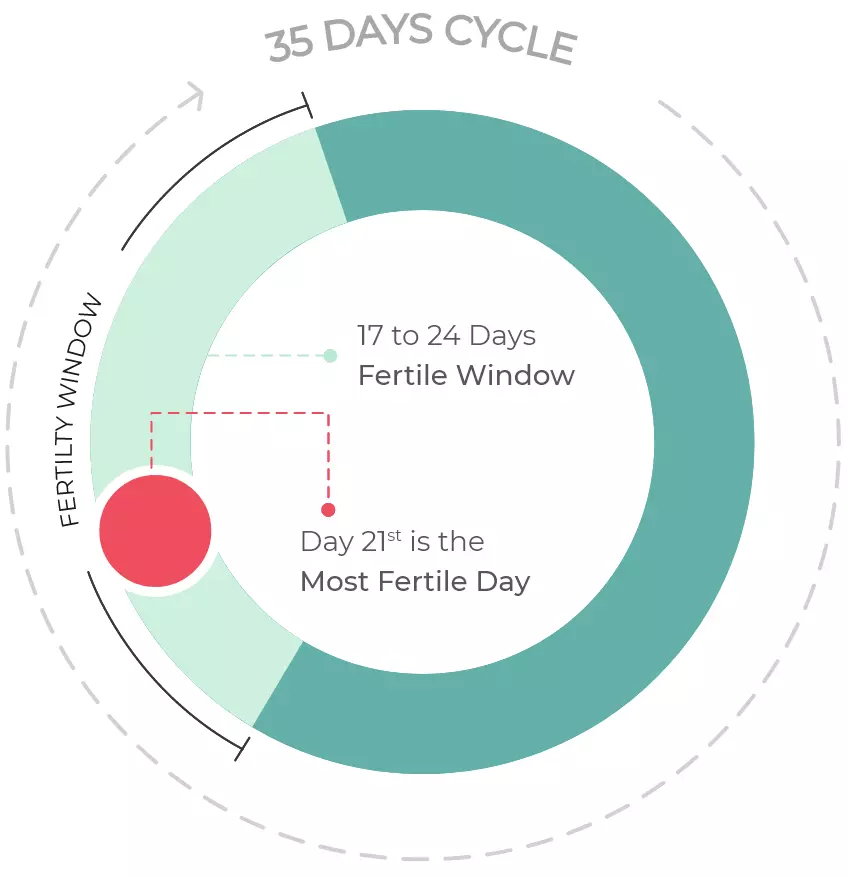
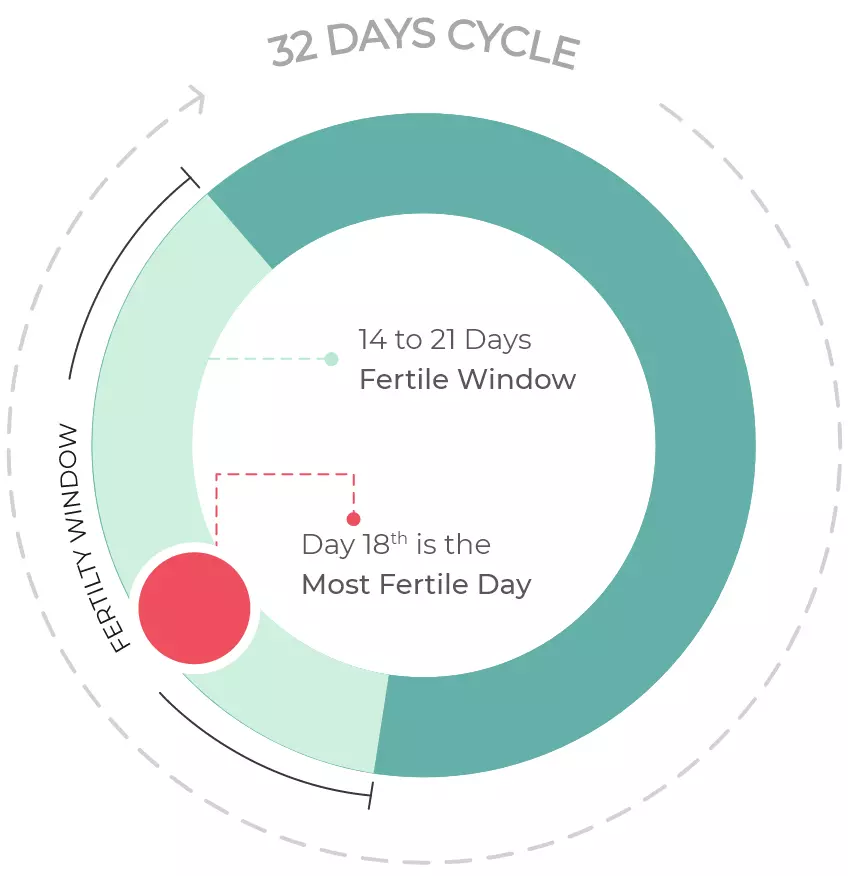
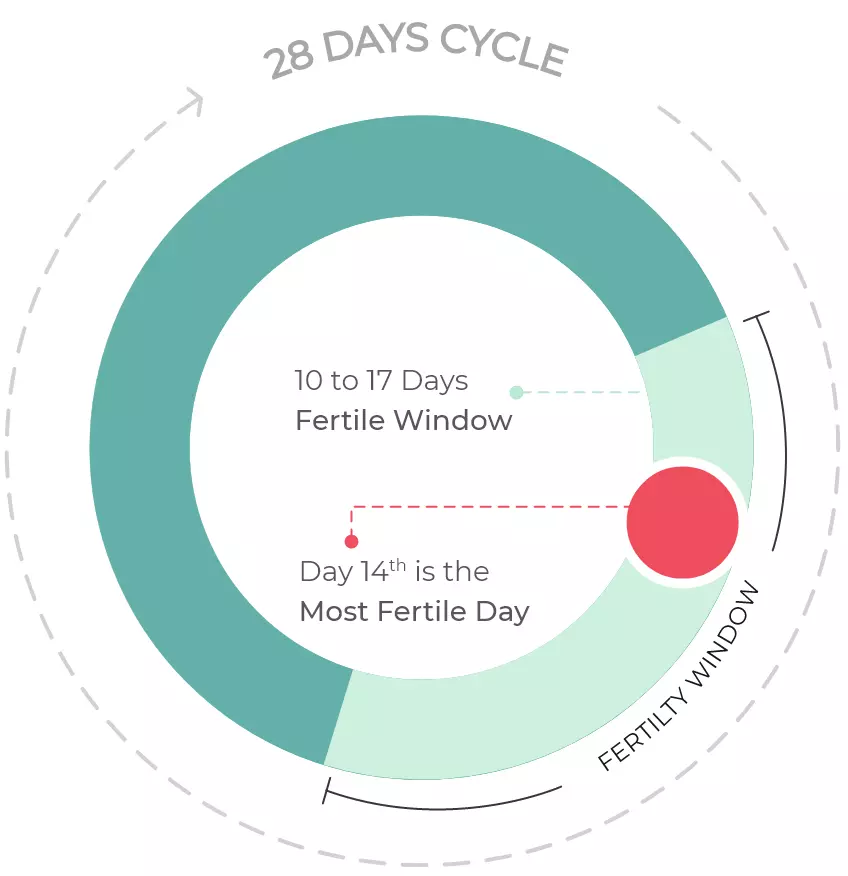
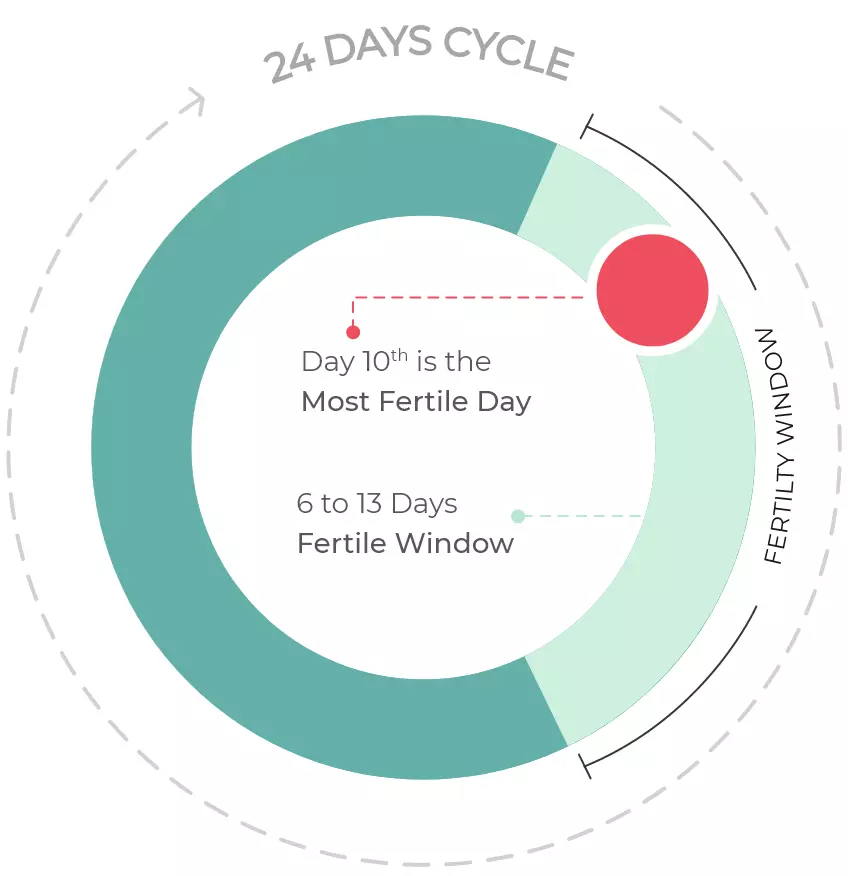
Late Ovulation: Causes, Symptoms & Effect
Causes
Ovulation can be late or absent due to an imbalance in your hormones but that doesn't mean that you're infertile. If you ovulate between days 21-35 of your cycle, then you might have no clue about your next menstrual cycle. If you're stressed and wondering if there are any chances of getting pregnant after a delayed or late ovulation, then you don't have to worry. Most of the time tracking your menstrual cycle and ovulation window can be a daunting task and for that, you can take help from a fertility expert.
Let's find out what causes late ovulation:
Stress
Stress of any kind be it physical, mental, or emotional, is bad for your health and fertility. It causes menstrual disorders in women because of poor hormonal health.
Thyroid Disorders
A woman is said to be fertile when the pituitary gland is creating hormones. Even if the woman is ready to conceive, thyroid disorders like Hypothyroidism or Hyperthyroidism affect the natural process and creates a problem in the ovulation cycle. Irregular periods can happen due to Hyperprolactinemia (When hormone prolactin is secreted excessively).
Breasfeeding
Prolactin is an essential hormone that produces breast milk and that also lowers fertility in a woman’s body during lactation. It's normal for nursing mothers to get an irregular menstrual cycle.
PCOS (Polycystic Ovary Syndrome)
PCOS affects the ovaries because testosterone is overproduced. It affects the functioning of ovaries by producing an excess of male hormones in a woman’s body, weight gain, irregular menstrual cycle, enlarged ovaries, and small cysts are built up in ovaries. Women with PCOS have to face many complications when trying to conceive.
Medications
Certain drugs and medications like steroids, marijuana, cocaine, some antipsychotic medication, and nonsteroidal anti-inflammatories can restrain your ovulation cycle.
Symptoms
Some of the common symptoms of delayed or late ovulation are:
Vaginal Discharge
Changes in the vaginal discharge and increased cervical mucus, which resembles egg whites and appears to be stretchy and clear.
Spotting
When the ovulation is late, some women may experience spotting.
BBT
Increase in basal body temperature.
Pain in the lower abdomen
Pain at one side of your tummy or breakthrough bleeding. It is also called Mittelschmerz.
Effects
After knowing about the causes and common symptoms of late ovulation, let's find out how does it affects conception and fertility:
Difficulty in tracking your menstrual cycles
Fluctuation in hormonal levels and late maturity of eggs
Increase in breast sensitivity
Heightened sex drive
Longer wait time for sperms to get fertilized
Release of immature eggs
When should you see a doctor?
Many couples are hesitant to visit a gynecologist & obstetrician because they lack knowledge and don't know when they should consult one. You should consult a fertility expert if:
You’ve been trying to conceive for the last 1 year
You experience abnormal bleeding and excruciating pain during periods
You’ve not had a menstrual cycle for the last 90 days
PRODUCTS YOU MAY LIKE
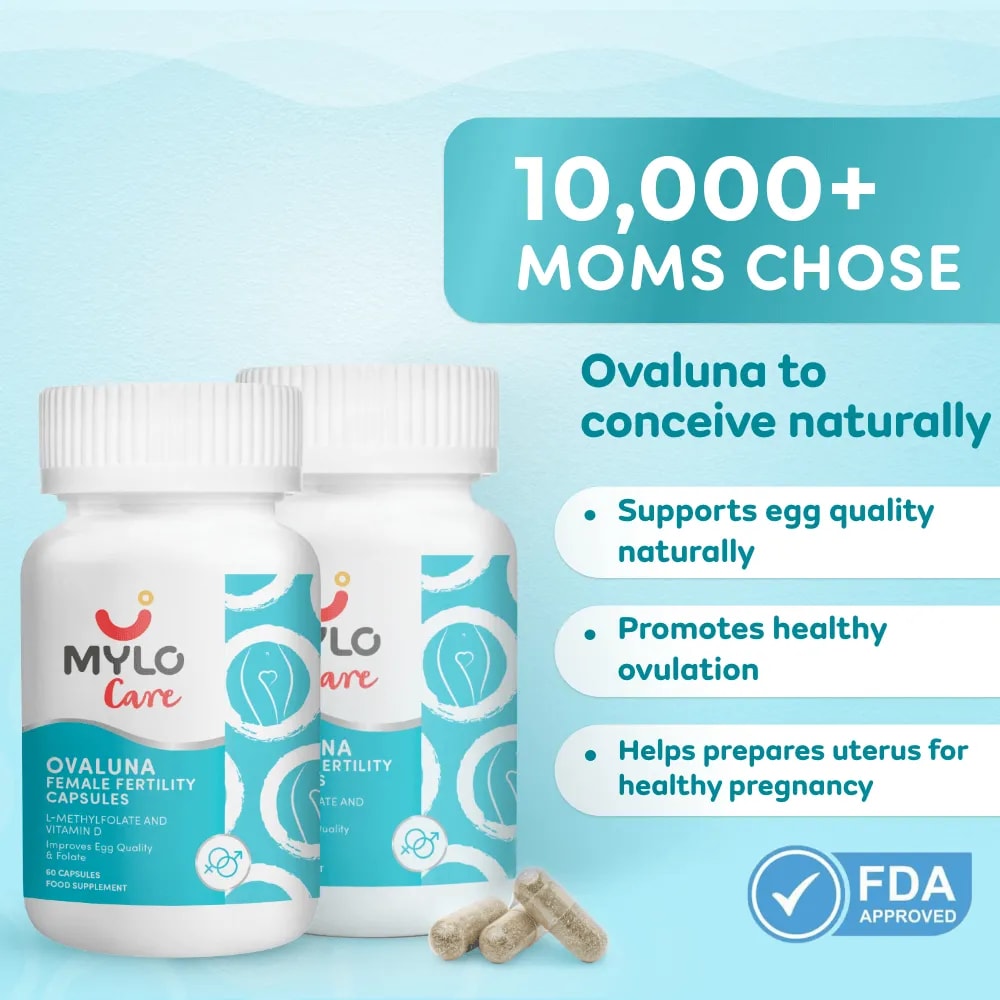
Mylo Ovaluna Female Fertility Capsules
(2 Month Pack)

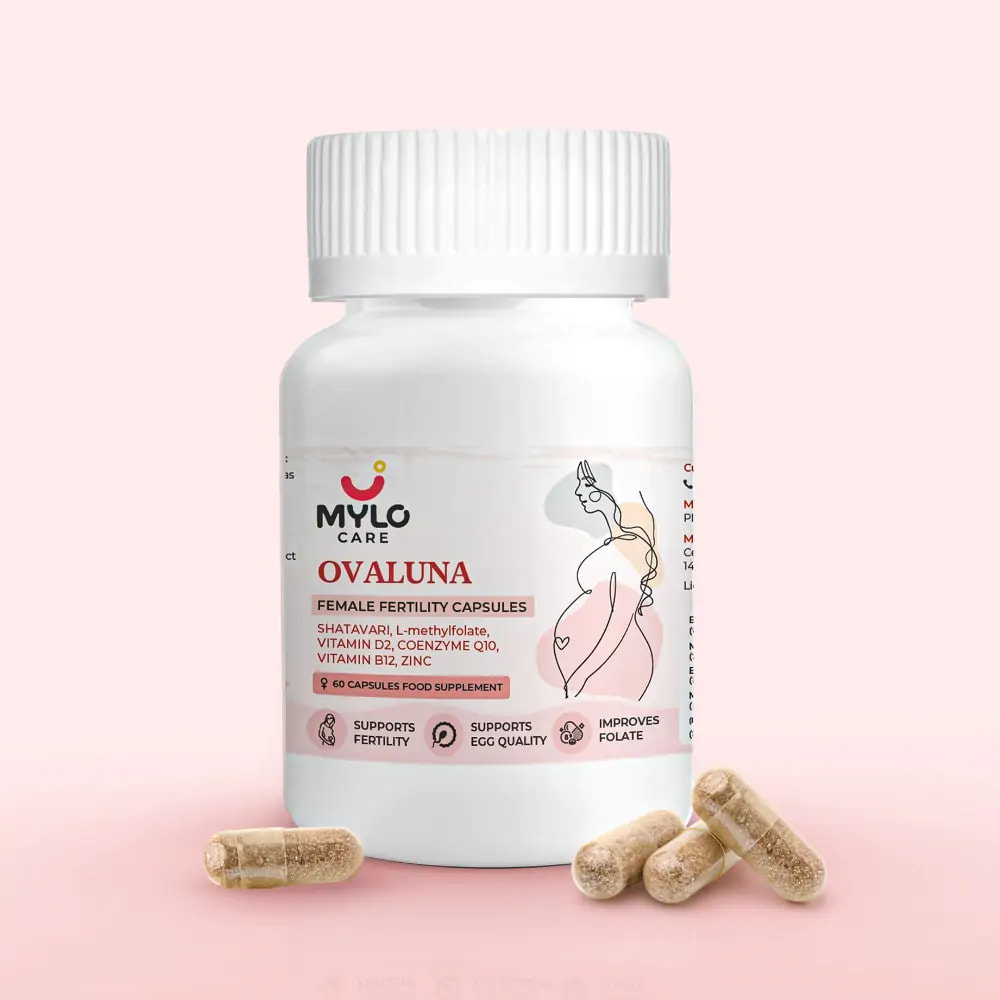
Ovaluna Female Fertility Capsules for Improved Egg Health & Folate Levels - 60 Capsules

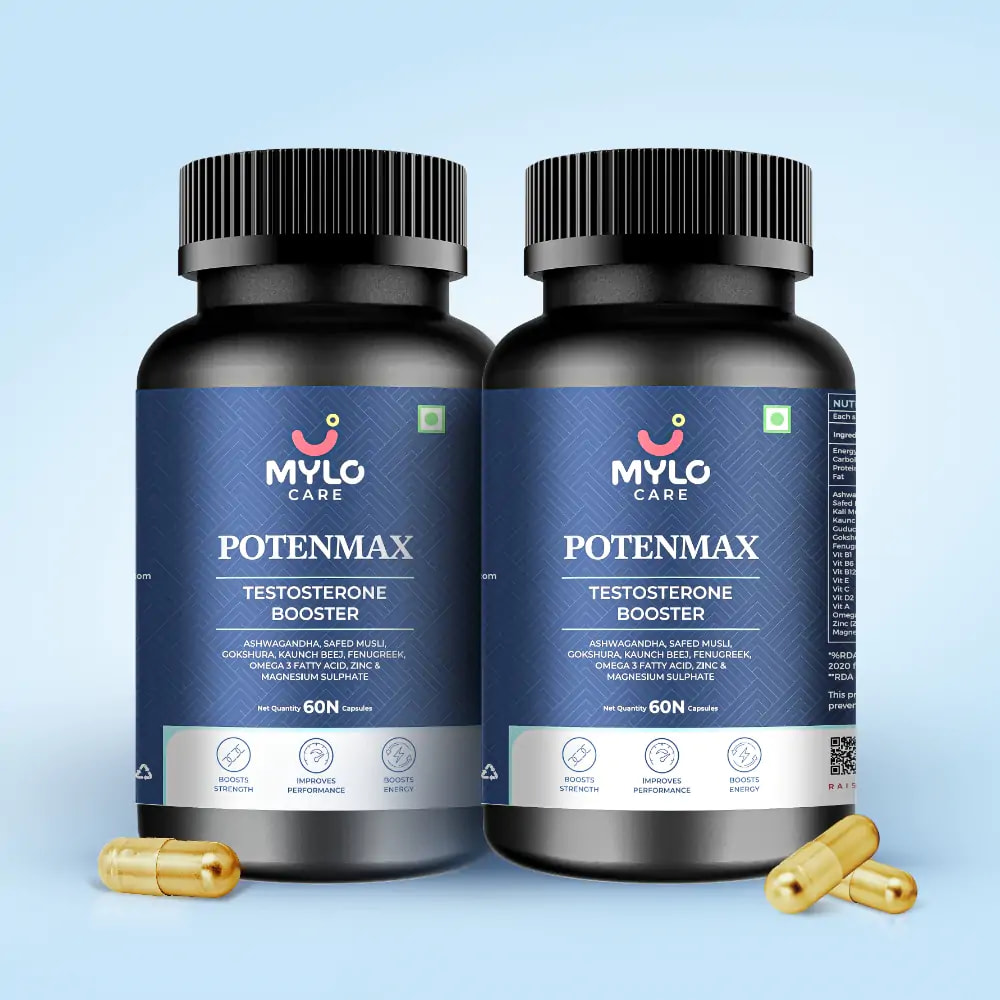
Potenmax Testosterone Booster Capsules for Increased Stamina & Testosterone Levels - 60 Capsules - Pack of 2
(Pack of 2)

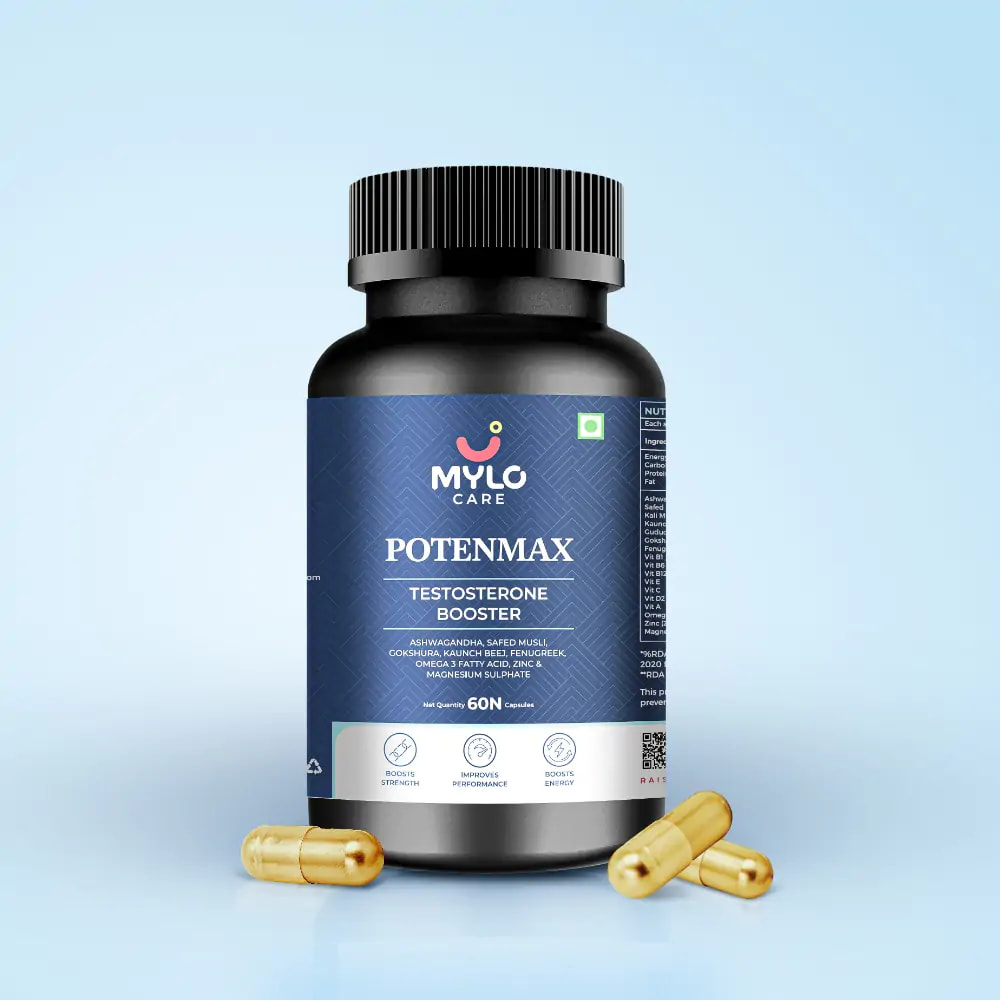
Potenmax Testosterone Booster Capsules for Increased Stamina & Testosterone Levels - 60 Capsules
(Pack of 1)


Men Performance Boost Super Saver Combo - Wheatgrass Powder + Potenmax Testosterone Booster Capsules (Pack of 1)
EXPLORE MORE HELPFUL TOOLS
Read more on Mylo
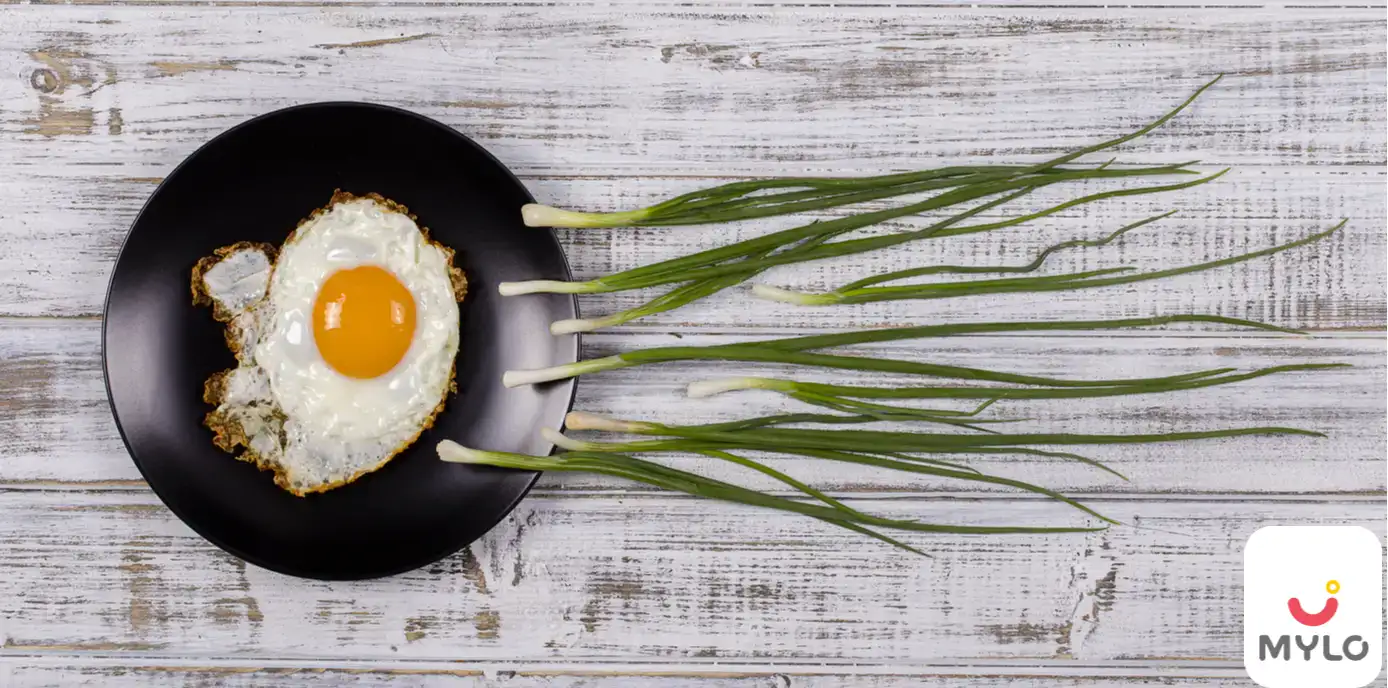
GETTING PREGNANT
Ovulation Period - The Most Fertile Window, Open the Roadblock to Pregnancy
1600
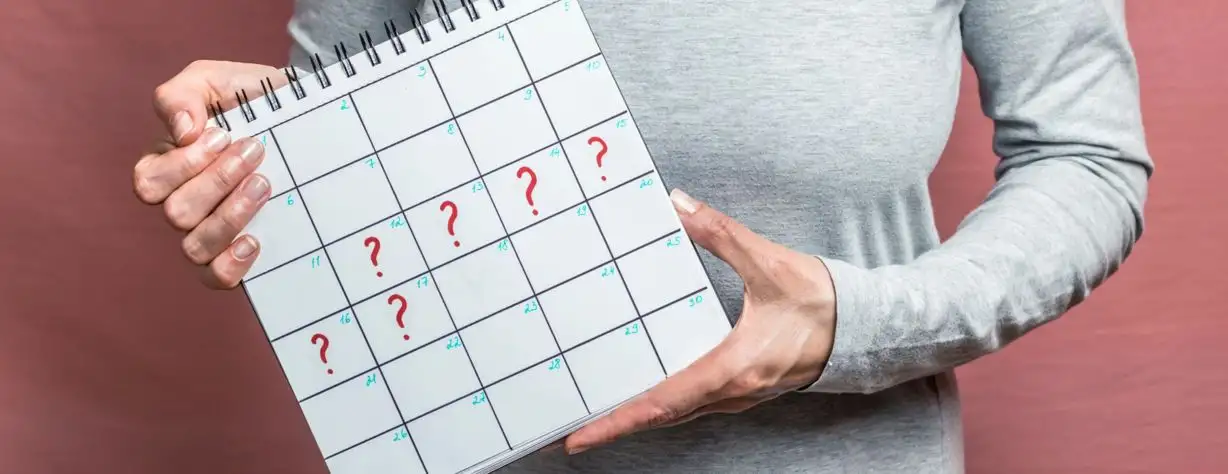
LATE PERIODS
11 Possible Causes of a Delayed Period
51219
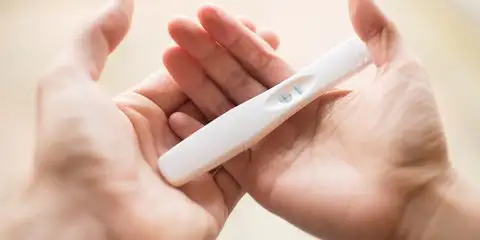
PREGNANCY TESTS
How can you easily determine using seven easy homemade remedies to check if you're pregnant or not?
25917
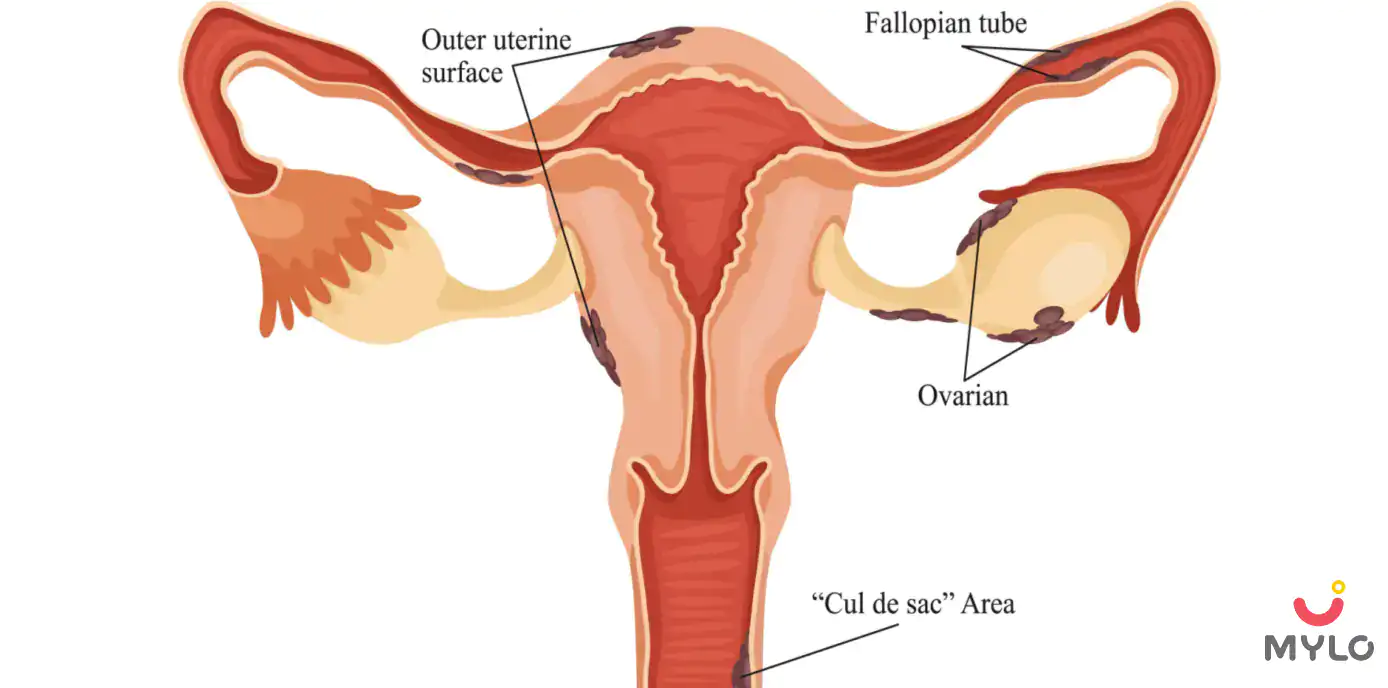
IMPLANTATION BLEEDING
How to differentiate between implantation bleeding and your periods?
27033

CONCEPTION
Does Sleep Really Have an Impact on Conception?
36997

PERIODS
When Should You Take A Pregnancy Test With Irregular Periods?
1024


AWARDS AND RECOGNITION

Mylo wins Forbes D2C Disruptor award

Mylo wins The Economic Times Promising Brands 2022
AS SEEN IN
















- Mylo Care: Effective and science-backed personal care and wellness solutions for a joyful you.
- Mylo Baby: Science-backed, gentle and effective personal care & hygiene range for your little one.
- Mylo Community: Trusted and empathetic community of 10mn+ parents and experts.
What is ovulation calculator
The ovulation period calculator helps track your most fertile period so that you can plan attempts at getting pregnant if you are trying to conceive. Ovulation usually happens 14 days before you get your period.
How Do You Calculate Your Ovulation Days?
To calculate the ovulation days you need to know the length of your menstrual cycle and subtract 14 from the first day of bleeding in your last period to the first day of bleeding in your next. You can use a free ovulation calculator available online for the same.
Signs Of Ovulation
The signs of ovulation include bloating, abdominal cramps, elevated body temperature, breast tenderness, increased sexual desire and changes in cervical mucus.
How Many Days After My Period Will I Ovulate?
The usual time of ovulation is twelve to fourteen days before your next period starts and is likely the time when you can get pregnant in case you are trying to conceive. You can use an ovulation tracker to keep track of the ovulation period.
What If My Periods Are Irregular?
It’s best to consult your physician in case you see abnormal periods or a change from the regular menstrual period. You may also try natural remedies such as exercising regularly and eating healthy.
Using Ovulation Test Kits
To use an ovulation test kit, you need to pee on the given strip or stick and usually wait about three to five minutes to detect results. These kits work by detecting the luteinizing hormone also known as LH surge.



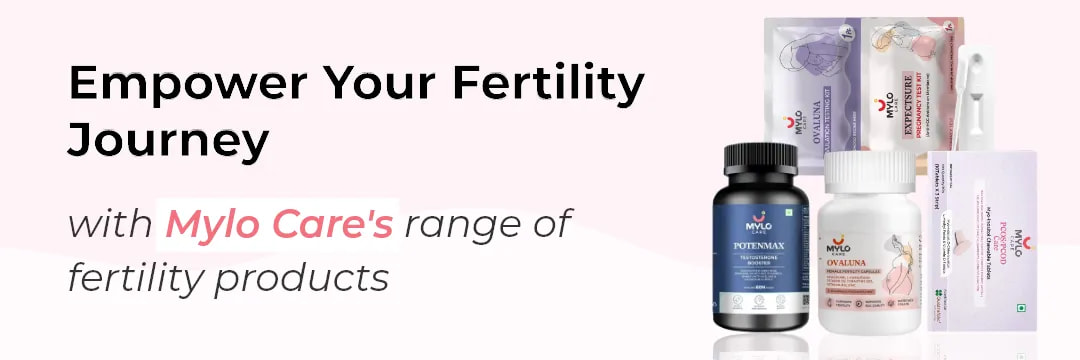

%403x.webp&w=1900&q=90)

%403x.webp&w=1900&q=90)
%403x.webp&w=1900&q=90)
%403x.webp&w=1900&q=90)


